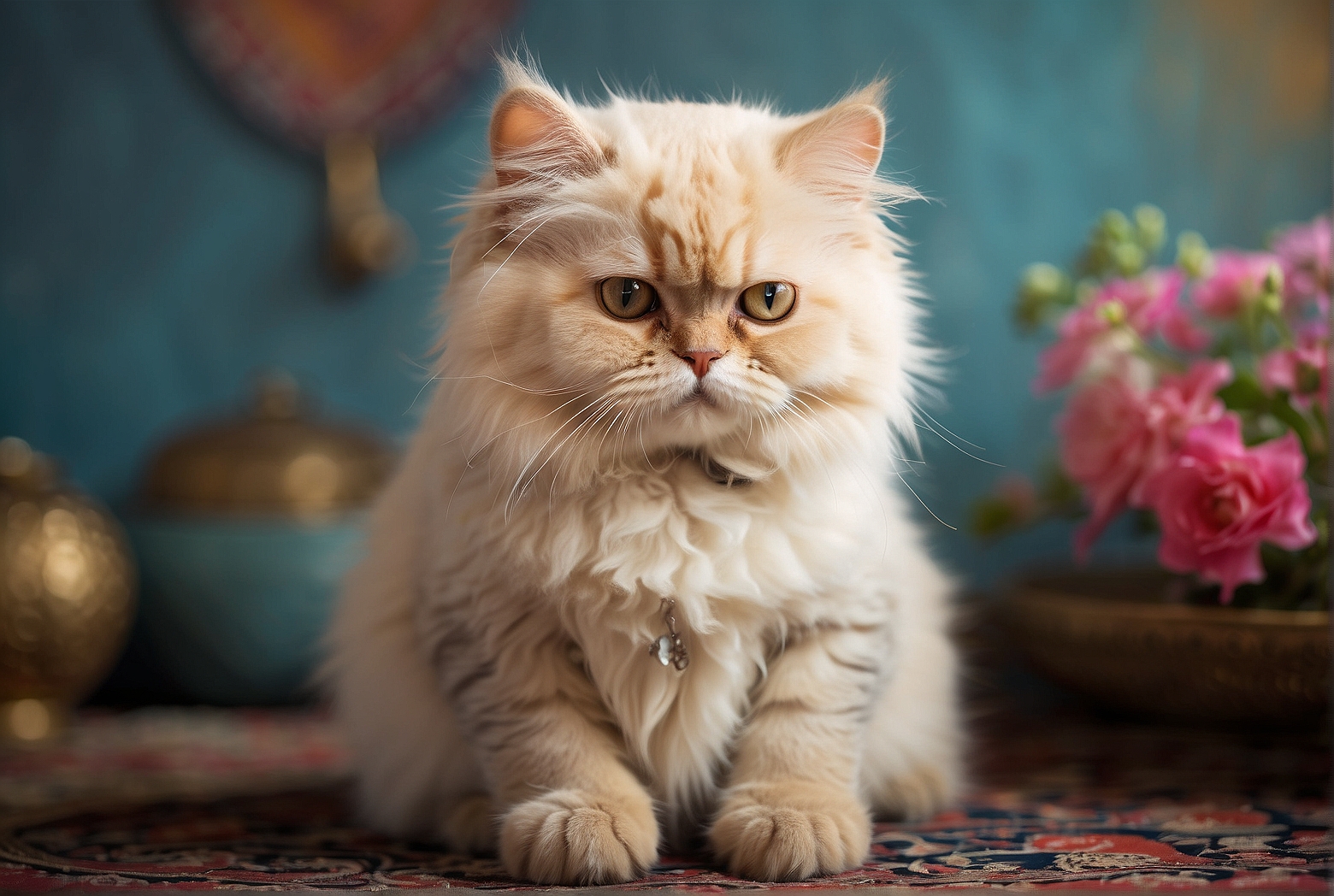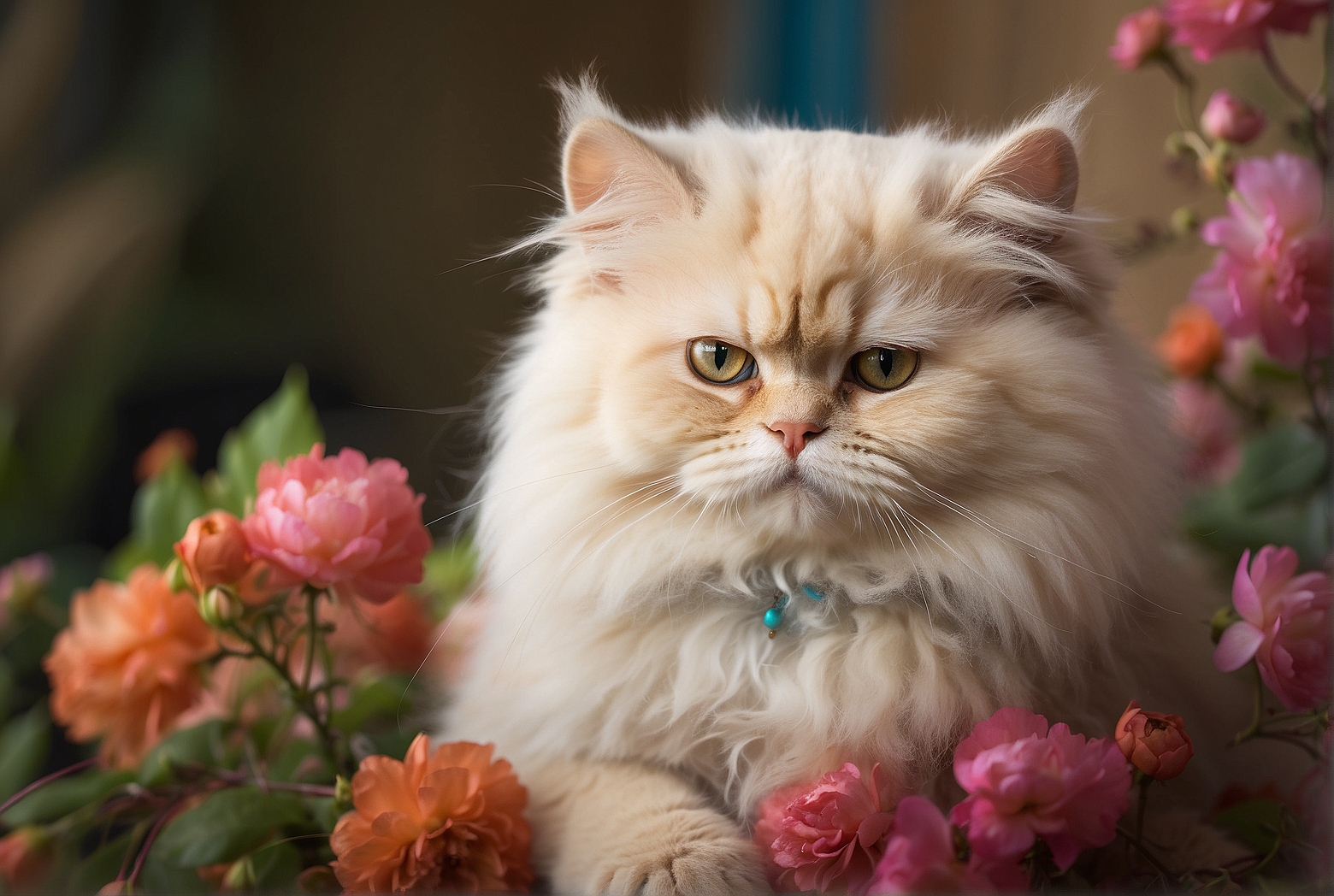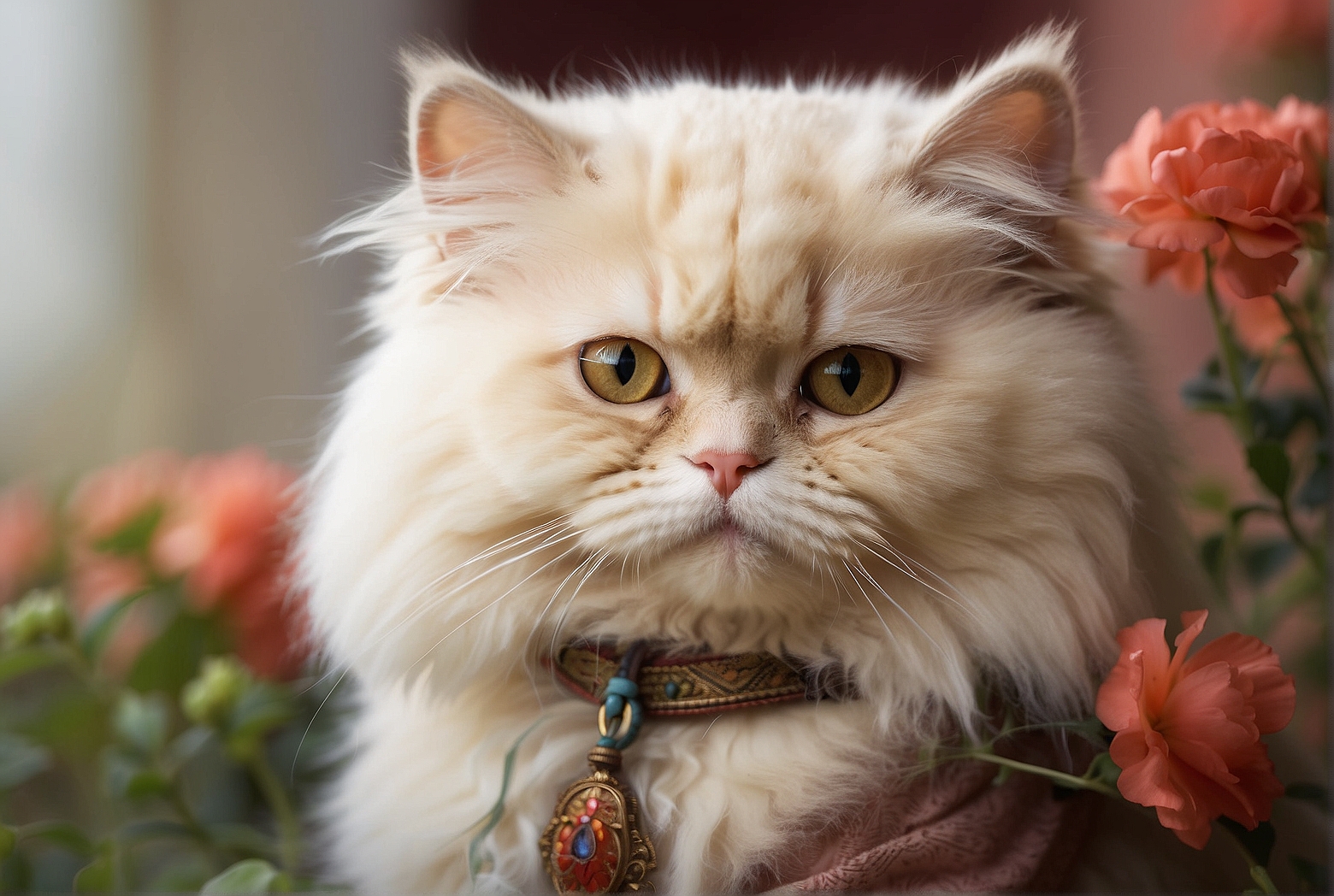Persian cats have long been adored for their luxurious, flowing coats and captivating, doll-like faces. However, amidst all the admiration and fascination, one cannot help but wonder, are Persian cats healthy? This article aims to shed light on this question and provide you with valuable insights regarding the overall health and well-being of these enchanting feline companions. From their distinct characteristics to potential health issues, we will explore the world of Persian cats, ensuring you have all the information needed to care for these delightful creatures.
Physical Health
Common Health Issues
Persian cats are generally known to be prone to certain common health issues. These can include conditions such as dental problems, urinary tract infections, and allergies. It is important to be aware of these issues and to monitor your Persian cat for any signs or symptoms. By detecting these problems early, you can seek appropriate veterinary care and ensure the ongoing health and well-being of your feline friend.
Genetic Disorders
Persian cats, like many purebred cats, can also inherit certain genetic disorders. These may include polycystic kidney disease (PKD), which causes the formation of cysts in the kidneys, and hypertrophic cardiomyopathy (HCM), a condition that affects the heart. It is crucial to obtain your Persian cat from a reputable breeder who conducts thorough health screening to minimize the risk of inheriting these genetic disorders.
Respiratory Problems
Persian cats have a distinct facial structure, characterized by a short, flat nose and a shortened upper jaw. While this characteristic gives them their adorable appearance, it also contributes to certain respiratory issues. Their brachycephalic (short-faced) structure can lead to difficulties in breathing and increased susceptibility to respiratory infections. Regular veterinary check-ups and prompt medical attention can help manage these potential respiratory problems.
Joint and Bone Problems
Due to their stocky build and relatively short legs, Persian cats are prone to joint and bone issues. Arthritis, hip dysplasia, and luxating patellas are some of the conditions that can affect their mobility and comfort. Supporting your cat’s joints with a balanced diet, regular exercise, and providing appropriate surfaces for climbing and scratching can help alleviate these issues and promote a healthy musculoskeletal system.
Eye Conditions
One of the defining features of Persian cats is their expressive and captivating eyes. However, their large, round eyes can also make them more susceptible to certain eye conditions. Persians may be prone to issues such as excessive tearing, eye infections, and entropion (when the eyelids roll inward). Regular eye cleaning, proper grooming practices, and immediate veterinary attention for any eye-related concerns can help maintain clear and healthy eyes for your feline companion.

Dental Health
Maintaining good dental hygiene is crucial for the overall health and well-being of Persian cats. Due to their flat faces, Persians may be more prone to dental problems such as periodontal disease and tooth decay. Regular brushing of their teeth, feeding them a balanced diet that promotes dental health, and providing appropriate chew toys can all contribute to optimal oral care and prevent potential dental issues.
Obesity and Weight Management
Persian cats have a tendency to gain weight and become obese if their diets and exercise routines are not well-managed. Obesity can lead to a variety of health issues, such as diabetes, heart disease, and joint problems. Establishing a feeding schedule, monitoring portion sizes, and engaging in regular play and exercise activities can help prevent obesity and maintain a healthy weight for your Persian cat.
Grooming and Hygiene
Long Coat Maintenance
One of the distinct features of Persian cats is their luxurious, long coat. However, this requires regular and diligent grooming to prevent matting and keep their coat in optimal condition. Daily brushing is recommended to remove tangles and loose hair, as well as prevent the formation of mats. It is essential to use grooming tools specifically designed for long-haired cats and to be gentle and patient during the grooming process.
Bathing Frequency
Persian cats are known for their cleanliness and generally do not require frequent bathing. However, occasional baths may be necessary to keep their coat fresh and free from debris. It is important to use cat-specific shampoos and follow proper bathing techniques to avoid stress or potential skin issues. Consult with your veterinarian for guidance on bathing frequency and best practices for your Persian cat.
Eye and Tear Stain Cleaning
Tear staining is a common issue in Persian cats due to their prominent eyes and tear ducts. Regular cleaning of the tear stains is important to prevent discoloration and potential skin irritation. Using a damp cloth or specialized tear stain wipes, gently wipe away any accumulated debris or stains. It is crucial to be gentle and avoid getting any excessive moisture near the eyes.
Ear Cleaning
Persian cats can be more prone to ear infections due to their uniquely-shaped ear canals. Regular ear cleaning is necessary to prevent the build-up of wax and debris, which can lead to infections. Use a cat-specific ear cleaning solution and gently wipe the outer portion of the ear with a cotton pad or cloth. Avoid inserting anything into the ear canal, as this can cause injury. If you notice any signs of ear infection, such as redness, swelling, or discharge, seek veterinary care promptly.

Nail Trimming
Regular nail trimming is vital for the health and comfort of your Persian cat. Their nails can grow long and sharp, potentially causing discomfort or even injury. Use cat-specific nail clippers or a rotary nail grinder and trim the tips of the nails, being careful not to cut into the quick. If you are unsure or uncomfortable with trimming your cat’s nails, consult a professional groomer or your veterinarian.
Oral Care
In addition to regular dental hygiene practices, providing appropriate oral care products can further support your Persian cat’s dental health. Dental treats, dental toys, and water additives specifically designed to promote oral hygiene can help reduce plaque and tartar build-up. Consult your veterinarian for recommendations on suitable oral care products for your cat.
Diet and Nutrition
Choosing the Right Food
Selecting the right food for your Persian cat is essential for their overall health and well-being. Opt for high-quality cat food that provides balanced nutrition and meets the specific dietary needs of Persian cats. Look for formulas that are specifically formulated for their breed, taking into account their unique characteristics and potential health issues.
Feeding Schedule
Establishing a consistent feeding schedule is important for maintaining a healthy weight and overall digestion for your Persian cat. Divide their daily recommended food portion into multiple meals throughout the day, rather than leaving food out all the time. This helps prevent overeating and allows for better portion control.
Portion Control
Monitoring portion sizes is crucial in preventing obesity and maintaining a healthy weight for your Persian cat. Follow the feeding guidelines provided by the cat food manufacturer and adjust portion sizes as needed based on your cat’s age, activity level, and overall health. Regularly assess your cat’s body condition and consult with your veterinarian if you have concerns about their weight.
Water Intake
Proper hydration is vital for your Persian cat’s overall health and supports normal kidney function. Ensure a constant supply of fresh, clean water is always available for your cat. Some Persian cats may prefer drinking from wide, shallow bowls to avoid contact between their sensitive facial structure and the water.
Food Allergies
Persian cats, like any other cat breed, can develop food allergies or sensitivities. Common signs of food allergies include gastrointestinal issues, skin irritations, and excessive scratching. If you suspect your Persian cat may have a food allergy, consult with your veterinarian to determine the best course of action, which may involve dietary changes and elimination trials.
Supplements
While a well-balanced diet should provide your Persian cat with all the necessary nutrients, there may be certain circumstances where supplements could be beneficial. Consult with your veterinarian before adding any supplements to your cat’s diet to ensure they are safe and appropriate for your Persian’s specific needs.
Exercise and Play
Indoor vs. Outdoor
Persian cats are generally more suited for an indoor lifestyle rather than being allowed outdoors unsupervised. They are not as agile or street-savvy as some other breeds and may be more prone to injuries or getting lost. Creating a safe and enriching indoor environment with opportunities for exercise and play is important to keep your Persian cat physically and mentally stimulated.
Playing with Toys
Engaging in interactive play with appropriate toys is essential for a Persian cat’s physical and mental well-being. Incorporate toys that encourage chasing, pouncing, and batting to mimic their natural hunting instincts. Feather toys, laser pointers, and interactive puzzle toys are all great options for keeping your Persian entertained and active.
Interactive Play
Interactive play not only provides physical exercise for your Persian but also allows for vital bonding and socialization. Get involved in play sessions by using toys that require your participation, such as teaser wands or treat-dispensing toys. This helps strengthen the bond between you and your cat while also providing mental stimulation.
Exercise for Weight Management
Regular exercise is crucial for maintaining a healthy weight and preventing obesity in Persian cats. Provide opportunities for your cat to climb, explore, and engage in physical activities. Cat trees, scratching posts, and interactive tunnels can encourage your Persian to stay active and burn off excess calories. Consult with your veterinarian for personalized exercise recommendations based on your cat’s specific needs.
Mental Health and Stimulation
Socialization
Ensuring proper socialization from an early age is important for the mental well-being of your Persian cat. Introduce them to various people, experiences, and environments, gradually exposing them to new stimuli. Positive socialization helps prevent fear or anxiety-related behaviors and fosters a confident and well-adjusted feline companion.
Environmental Enrichment
Creating an enriched environment is crucial for your Persian cat’s mental stimulation and overall happiness. Provide scratching posts, hiding spots, elevated perches, and interactive toys to keep them engaged and entertained. Rotate toys and accessories periodically to prevent boredom and mimic the novelty of their natural environment.
Interactive Games
Engaging your Persian cat in interactive games can help sharpen their cognitive skills and provide mental stimulation. Activities such as puzzle toys, food-dispensing toys, and hide-and-seek games can challenge their problem-solving abilities and prevent boredom.
Training and Tricks
Persian cats can be trained to perform simple tricks and commands using positive reinforcement techniques. Training sessions can provide mental stimulation and strengthen the bond between you and your cat. Start with basic commands, such as sit or shake, and gradually progress to more advanced tricks based on your cat’s abilities and willingness to participate.
Attention and Affection
Persian cats thrive on human attention and affection. Spending quality time with your cat, providing regular grooming sessions, and engaging in gentle play can help fulfill their social and emotional needs. Regularly interacting with your Persian cat strengthens your bond and contributes to their overall mental well-being.
Veterinary Care
Routine Check-ups
Regular veterinary check-ups are crucial in monitoring the overall health of your Persian cat. During these visits, your veterinarian will conduct a thorough examination, including checking your cat’s weight, dental health, and any signs of potential health issues. Routine check-ups allow for early detection and intervention, helping to ensure your cat’s well-being.
Vaccinations
Following a proper vaccination schedule is essential to protect your Persian cat against common contagious diseases. Your veterinarian will recommend a vaccination protocol tailored to your cat’s age, lifestyle, and specific health needs. Staying up to date with vaccinations is an important aspect of responsible pet ownership and helps prevent unnecessary illnesses.
Parasite Prevention
Parasites, such as fleas, ticks, and internal parasites, can pose health risks to your Persian cat. Implementing a regular parasite prevention program, including topical flea and tick treatments and deworming medications prescribed by your veterinarian, helps safeguard your cat’s health and comfort.
Spaying and Neutering
Spaying or neutering your Persian cat is an important step in preventing unwanted litters and addressing certain health concerns. Female Persians benefit from spaying by minimizing the risk of uterine infections and reducing the likelihood of mammary gland tumors. Neutering male Persians can help prevent testicular cancer and reduce the risk of aggression and roaming behaviors.
Emergency Care
Knowing the location and contact information of an emergency veterinary clinic is crucial in case of unexpected health emergencies. Persian cats can be more susceptible to certain health issues, and having access to immediate professional care during emergencies can potentially save your cat’s life. Be prepared and have a plan in place, including familiarizing yourself with emergency veterinary services in your area.
Environmental Factors
Indoor Air Quality
Maintaining good indoor air quality is important for the overall health and well-being of your Persian cat. Ensure proper ventilation and avoid exposure to environmental irritants such as cigarette smoke, aerosol sprays, and strong chemical odors. Clean and dust your cat’s living area regularly to minimize potential respiratory issues.
Temperature and Humidity
Persian cats are sensitive to extreme temperatures and high humidity. Optimal temperature and humidity levels can help ensure their comfort and prevent potential respiratory issues. Keep their living environment at a moderate temperature, avoiding drafts and overly warm spaces.
Toxic Substances and Plants
Persian cats are curious by nature and may investigate or chew on household items that could be toxic to them. Ensure that cleaning products, medications, and other hazardous substances are stored securely and out of reach. Additionally, be cautious with plants in your home, as some common houseplants can be toxic to cats if ingested.
Safe Hiding Places
Persian cats often enjoy having safe and cozy hiding places in their environment. Provide cat-friendly hiding spots, such as enclosed cat beds, covered crates, or designated areas behind furniture. These spaces offer your Persian a sense of security and provide a sanctuary where they can retreat when they feel the need for privacy.
Life Expectancy
Average Lifespan
The average lifespan of Persian cats typically ranges from 12 to 16 years. However, with proper care, nutrition, and regular veterinary check-ups, some Persians can live even longer. Each cat’s lifespan may vary due to various factors, including genetics, overall health, and lifestyle.
Factors Influencing Lifespan
Several factors can influence the lifespan of a Persian cat. Genetics play a significant role, and cats from reputable breeders who prioritize health screenings may have a reduced risk of inheriting certain genetic disorders. Proper nutrition, exercise, regular veterinary care, and a safe and enriched environment all contribute to a longer and healthier life for your Persian cat.
Breeding Practices
Reputable Breeders
When considering obtaining a Persian cat, it is crucial to choose a reputable breeder who prioritizes the health and well-being of their cats. Reputable breeders conduct thorough health screenings, including genetic testing, to minimize the risk of passing on inherited diseases. They also provide appropriate socialization and care for their kittens, ensuring they are well-prepared for their new homes.
Avoiding Inbreeding
Inbreeding, or breeding closely related cats, can lead to a higher risk of inherited health issues. Reputable breeders carefully select breeding pairs to avoid any close familial relationships and minimize the chances of passing on genetic disorders. Ensuring healthy bloodlines through responsible breeding practices is essential for the long-term health of Persian cats.
Health Screening
Reputable breeders prioritize health screening for their breeding cats to identify potential genetic or health issues. These screenings may include tests for conditions such as polycystic kidney disease (PKD) and hypertrophic cardiomyopathy (HCM). By ensuring that breeding cats are free from inherited disorders, responsible breeders strive to produce healthier and genetically sound Persian kittens.
Early Detection and Care
Signs of Illness
Being familiar with the common signs of illness in Persian cats enables you to detect any potential health issues promptly. Keep an eye out for changes in appetite, water consumption, litter box habits, grooming behavior, and overall personality. Any sudden or significant changes may indicate the need for immediate veterinary attention.
Regular Health Monitoring
Regularly monitoring your Persian cat’s health through observation and physical examinations at home is an important part of their overall care. Perform visual checks of their eyes, ears, teeth, coat, and body condition. Regularly weigh your cat to monitor any unexplained weight loss or gain. By conducting these checks regularly, you can identify and address any potential health concerns early on.
Prompt Medical Attention
If you notice any signs or symptoms that concern you, it is crucial to seek prompt veterinary attention. Early intervention and treatment can often make a significant difference in the outcome of many health conditions. Trust your instincts and consult with your veterinarian if you have any concerns about your Persian cat’s health.
Persian cats can be wonderful companions, known for their gentle nature and affectionate personalities. By understanding their unique physical health needs, practicing proper grooming and hygiene, providing a balanced diet, ensuring regular exercise and mental stimulation, and prioritizing veterinary care, you can enhance their overall well-being and help them live a long and healthy life. Remember, your furry friend relies on you for their physical, mental, and emotional well-being, so embrace and cherish the responsibility of being a loving and responsible Persian cat owner.
